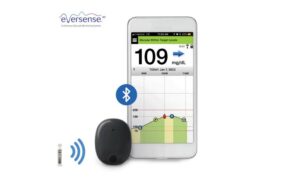
Medicare implemented Local Coverage Determinations (LCDs) providing access to implantable CGM for basal-only patients. It significantly expands access to Senseonics’ long-term (six months) implantable glucose monitor. The expansion for implantable CGMs includes all people with diabetes using insulin. It removes the previous requirement for multiple insulin administrations per day.
Additionally, the new policy covers non-insulin users with a history of problematic hypoglycemia. Noridian, Palmetto and National Government Services published the final LCDs. The earliest expansion becomes effective on Feb. 25, 2024, with the remainder expected to be finalized in the near future.
Senseonics joins Dexcom and Abbott as the latest CGM maker to benefit from updated Medicare policies. A CMS modification that includes people with diabetes who receive insulin treatment or have a history of problematic hypoglycemia went into effect last year. The proposal eliminates the requirement for frequent adjustments of the patient’s insulin treatment regimen. This falls on the basis of glucose measurement testing.
Eversense E3 requires two sensor insertion and removal procedures per year. It offers a mean absolute relative difference (MARD — an accuracy metric for CGMs) of 8.5%. The system features predictive on-body alerts to never miss a critical event. Senseonics develops the sensor and Ascensia serves as the global exclusive distributor for Eversense E3.
“We welcome this policy change and look forward to bringing this differentiated CGM option to millions of more Americans through Medicare,” said Rudy Thoms, VP, CGM commercial U.S. of Ascensia Diabetes Care. “Eversense E3 is a truly unique technology and optionality is key in diabetes care, where what works for one person does not always work for all. In particular, our Medicare users love that this twice-yearly CGM offers them unparalleled reliability and flexibility, without the burden of regular self-insertions and the constant reordering of supplies.
“It is important that people with diabetes have the same access to the benefits of a fully implantable, long-term CGM, as they do to traditional CGMs (that have a much shorter lifespan), and so we are thrilled to see this expansion.”

